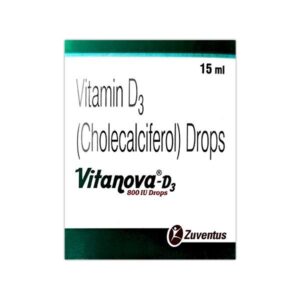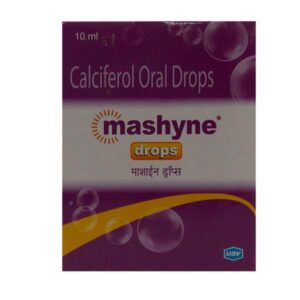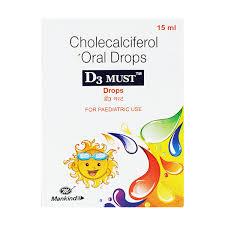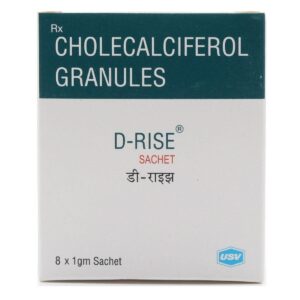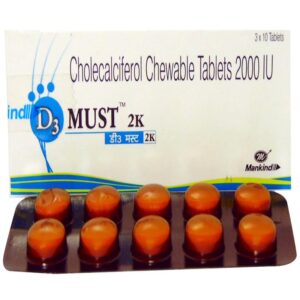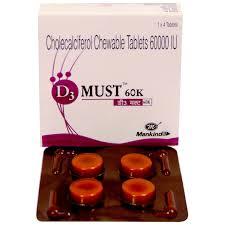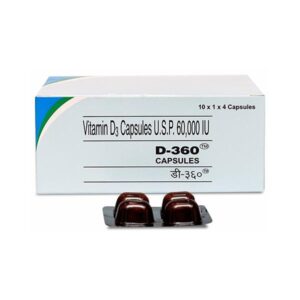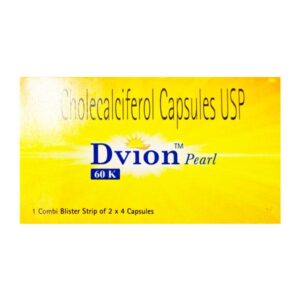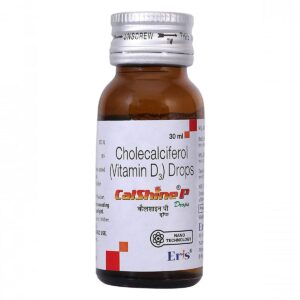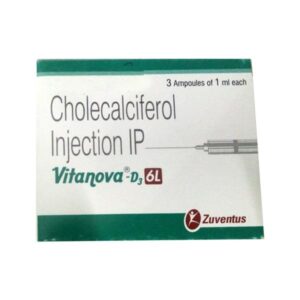FOLIC ACID + CALCIUM CARBONATE + CHOLECALCIFEROL + IRON (III) HYDROXIDE POLYMALTOSE COMPLEX
Folic Acid: Folic acid, also known as vitamin B9, is a synthetic form of folate. It is an essential nutrient that the body uses to make new cells. Folic acid is primarily used to treat and prevent deficiencies of folate in the body. It is commonly prescribed to pregnant women to help prevent birth defects, such as spina bifida and anencephaly.
The primary mechanism of action of folic acid is its conversion into its active form, methyltetrahydrofolate (MTHF), in the body. MTHF is involved in numerous biochemical processes, including methylation reactions and the synthesis of DNA, RNA, and certain amino acids. By providing an adequate supply of folate, folic acid helps support these essential processes.
The recommended daily dose of folic acid varies depending on the individual’s age, sex, and specific needs. For most adults, the recommended daily intake of folic acid is 400 micrograms. However, pregnant women may require higher doses, typically 600-800 micrograms. It is important to consult with a healthcare professional to determine the appropriate dosage for an individual’s specific situation.
Folic acid is generally well-tolerated and has few side effects when taken at the recommended doses. However, high doses of folic acid (5,000 micrograms/day or more) may cause side effects such as nausea, bloating, gas, and insomnia. It is important not to exceed the recommended dosage unless advised by a healthcare professional.
It is worth noting that folic acid can interact with certain medications. For example, anticonvulsant drugs, such as phenytoin and carbamazepine, can reduce the effectiveness of folic acid supplements, and methotrexate may have its effects potentiated by folic acid. Individuals taking these medications should consult with their healthcare provider before starting folic acid supplementation.
Overall, folic acid is a vital nutrient that plays a crucial role in numerous biological processes. By preventing folate deficiency, it helps support healthy cell division and proper fetal development.
Calcium Carbonate: Calcium Carbonate is a medication that is used to treat conditions caused by low calcium levels in the body such as osteoporosis, hypoparathyroidism, and certain types of kidney stones. It is also used as a calcium supplement to prevent or treat calcium deficiency.
The mechanism of action of Calcium Carbonate involves the provision of calcium ions to the body, which are necessary for various physiological processes. Calcium ions play a vital role in muscle contraction, nerve function, blood clotting, and bone health. Calcium Carbonate provides a source of supplementary calcium, helping to maintain adequate calcium levels in the body.
The recommended dose of Calcium Carbonate may vary based on the specific condition it is being used to treat. As a dietary supplement, it is typically taken with meals to enhance absorption. For the treatment of conditions such as osteoporosis, the usual dose is 1,000 to 1,500 mg per day, divided into multiple doses.
Possible side effects of Calcium Carbonate may include constipation, stomach upset, gas, and bloating. These side effects are generally mild and temporary. In rare cases, high levels of calcium in the blood (hypercalcemia) may occur, leading to symptoms such as increased thirst, frequent urination, nausea, vomiting, and confusion. If any concerning side effects occur, it is important to seek medical attention.
It is important to note that Calcium Carbonate can interact with certain medications, such as tetracycline antibiotics and iron supplements, reducing their effectiveness. Therefore, it is necessary to consult with a healthcare professional or pharmacist before starting or altering the dose of Calcium Carbonate if you are taking other medications. Additionally, individuals with certain medical conditions, such as kidney problems or high calcium levels, should use Calcium Carbonate with caution and under medical supervision.
Cholecalciferol: Cholecalciferol, also known as vitamin D3, is a fat-soluble vitamin that is essential for maintaining healthy bones and teeth. It is naturally formed in the skin when exposed to sunlight and can also be obtained through dietary sources or as a supplement.
The primary use of cholecalciferol is for the treatment and prevention of vitamin D deficiency. This condition can result in weakened bones and increased risk of fractures, as well as other health issues. Cholecalciferol helps the body absorb calcium and phosphorus from the diet, which are necessary for normal bone development and maintenance.
Cholecalciferol’s mechanism of action involves its conversion into an active form known as calcitriol in the liver and kidneys. Calcitriol then acts as a hormone that regulates the absorption of calcium and phosphorus from the intestines, encourages bone mineralization, and inhibits the release of parathyroid hormone, which can lead to bone loss.
The recommended dose of cholecalciferol varies depending on age, underlying health conditions, and the severity of vitamin D deficiency. It is commonly administered orally as a tablet or in liquid form.
While cholecalciferol is generally considered safe when taken within recommended doses, excessive intake can lead to vitamin D toxicity. This can result in elevated blood calcium levels, which can cause symptoms such as nausea, vomiting, constipation, weakness, and increased thirst. Prolonged vitamin D toxicity can lead to kidney stones, kidney damage, or heart problems.
Additionally, cholecalciferol should be used with caution in individuals with certain medical conditions, including hypercalcemia, hypercalciuria, granulomatous diseases, or malabsorption syndromes.
It is important to consult a healthcare professional, such as a doctor or pharmacist, before starting cholecalciferol supplements or increasing the dosage to ensure proper use and avoid potential side effects.
Iron (iii) Hydroxide Polymaltose Complex: Iron (III) hydroxide polymaltose complex is a medication commonly used to treat iron deficiency anemia. It is a type of iron supplement that helps to replenish iron stores in the body. This drug is available in various forms, such as oral suspensions, tablets, and injections.
The mechanism of action of Iron (III) hydroxide polymaltose complex involves the release of iron ions in the gastrointestinal tract. These ions are then absorbed by the body and used in the production of hemoglobin, a protein responsible for transporting oxygen in red blood cells. By increasing iron levels, this medication helps to correct anemia and restore overall health.
The dose of Iron (III) hydroxide polymaltose complex varies depending on factors such as age, weight, and severity of iron deficiency. It is usually taken once or twice daily with a glass of water, preferably on an empty stomach. It is essential to follow the prescribed dosage and duration recommended by a healthcare professional to achieve optimal results.
Like any medication, Iron (III) hydroxide polymaltose complex may cause side effects. Common side effects include constipation, nausea, vomiting, and stomach upset. These side effects are usually mild and transient. However, if they persist or worsen, it is advisable to consult a healthcare provider.
In some cases, Iron (III) hydroxide polymaltose complex may cause more serious side effects such as allergic reactions, which can manifest as difficulty breathing, rash, or swelling of the face, tongue, or throat. If any of these symptoms occur, immediate medical attention should be sought.
It is important to note that Iron (III) hydroxide polymaltose complex may interact with certain medications, such as antacids, certain antibiotics, and medications used to treat osteoporosis. Therefore, it is crucial to inform a healthcare professional about any other medications being taken to avoid potential interactions.
In summary, Iron (III) hydroxide polymaltose complex is a medication commonly used to treat iron deficiency anemia. It works by replenishing iron stores in the body and promoting the production of hemoglobin. While generally well-tolerated, side effects may occur, and it is important to follow the recommended dosage and seek medical attention if any severe side effects are experienced.

